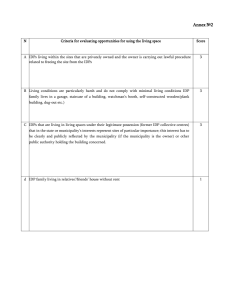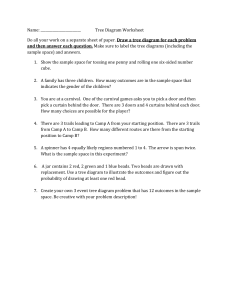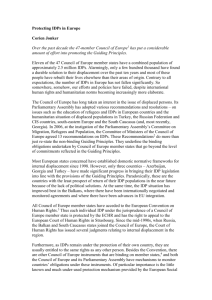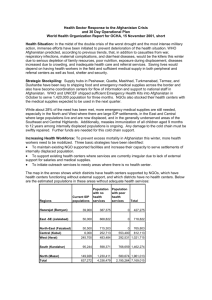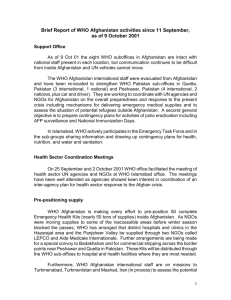Continuing concern over security in Mazar
advertisement
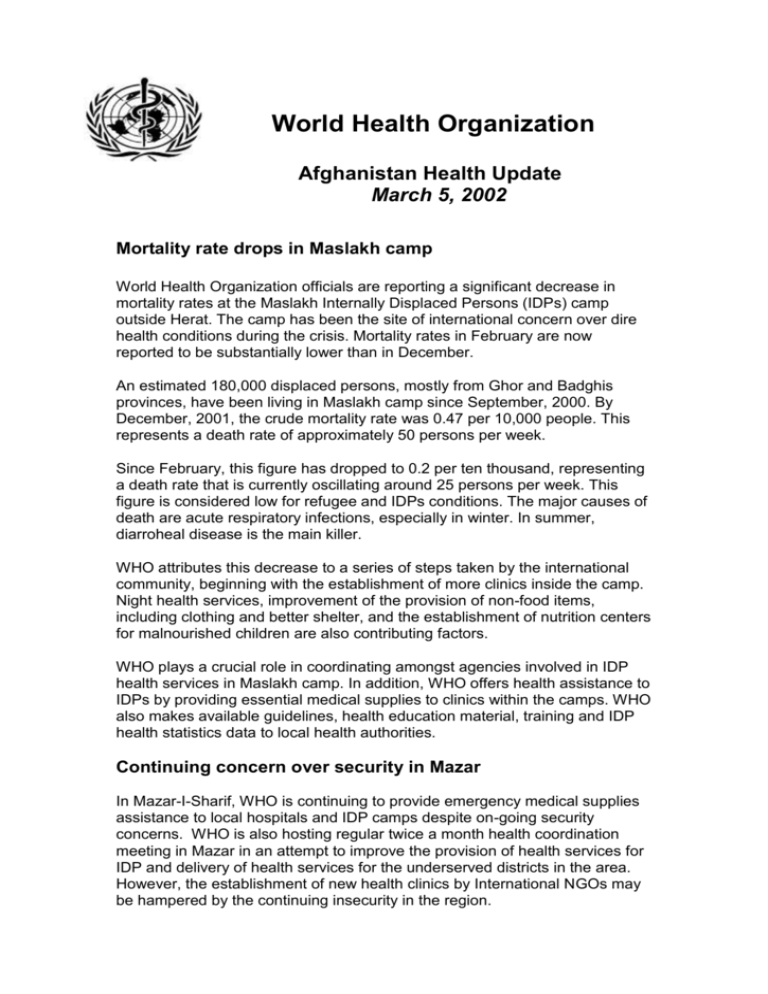
World Health Organization Afghanistan Health Update March 5, 2002 Mortality rate drops in Maslakh camp World Health Organization officials are reporting a significant decrease in mortality rates at the Maslakh Internally Displaced Persons (IDPs) camp outside Herat. The camp has been the site of international concern over dire health conditions during the crisis. Mortality rates in February are now reported to be substantially lower than in December. An estimated 180,000 displaced persons, mostly from Ghor and Badghis provinces, have been living in Maslakh camp since September, 2000. By December, 2001, the crude mortality rate was 0.47 per 10,000 people. This represents a death rate of approximately 50 persons per week. Since February, this figure has dropped to 0.2 per ten thousand, representing a death rate that is currently oscillating around 25 persons per week. This figure is considered low for refugee and IDPs conditions. The major causes of death are acute respiratory infections, especially in winter. In summer, diarroheal disease is the main killer. WHO attributes this decrease to a series of steps taken by the international community, beginning with the establishment of more clinics inside the camp. Night health services, improvement of the provision of non-food items, including clothing and better shelter, and the establishment of nutrition centers for malnourished children are also contributing factors. WHO plays a crucial role in coordinating amongst agencies involved in IDP health services in Maslakh camp. In addition, WHO offers health assistance to IDPs by providing essential medical supplies to clinics within the camps. WHO also makes available guidelines, health education material, training and IDP health statistics data to local health authorities. Continuing concern over security in Mazar In Mazar-I-Sharif, WHO is continuing to provide emergency medical supplies assistance to local hospitals and IDP camps despite on-going security concerns. WHO is also hosting regular twice a month health coordination meeting in Mazar in an attempt to improve the provision of health services for IDP and delivery of health services for the underserved districts in the area. However, the establishment of new health clinics by International NGOs may be hampered by the continuing insecurity in the region. Polio Immunization in Afghanistan WHO, working with the Afghan Ministry of Public Health and UNICEF, has begun carrying out a polio vaccination campaign in the Southern and Eastern Regions of Afghanistan. An estimated 1,950,000 children will receive two drops of Oral Polio Vaccine over the next two days in this part of Afghanistan. The campaign will involve 14,000 volunteers, 1,000 social mobilizers and 1,000 supervisors.
